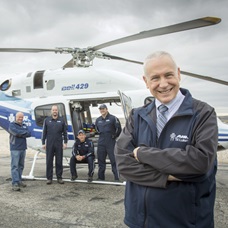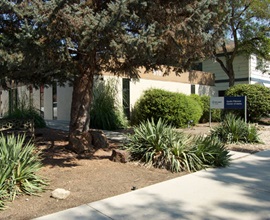Dr. Pate’s Prescription for Change
Cutting-Edge Cystic Fibrosis Research: Extending and Improving Lives

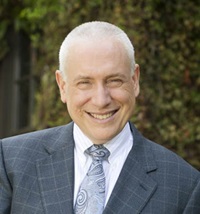
St. Luke’s is embracing accountable care and population health. One question I have been asked many times is “Is there a role for clinical research in this new world of pay for value?” The answer is “Yes!”
For St. Luke’s, we have two bottom lines for pay for value - better outcomes and lower total cost of care. If clinical research is directed at improving outcomes and/or lowering total cost of care, then it is embraced here at St. Luke’s.
A great case in point is our cystic fibrosis research. It has made dramatic progress in improving the outcomes of this terrible disease, while also lowering the total cost of care by reducing hospitalizations and costly infections. Here to tell you the exciting story of our CF research is today’s guest blogger, St. Luke’s Communications Coordinator Chereen Langrill.
- David C. Pate, M.D., J.D.
When St. Luke’s cystic fibrosis research program began on Dec. 3, 2007, it was an anomaly within the cystic fibrosis research community nationwide. At the time it was the smallest organization to join a prestigious group of 80, and the only site that wasn’t associated with a medical school or university.
St. Luke’s joined the Cystic Fibrosis Therapeutics Development Network (TDN) with the understanding that it would be a test case for the network that serves as a collaboration of cystic fibrosis clinical research sites, including university medical centers such as Stanford and Vanderbilt. The clinical trials network evaluates the safety and effectiveness of new cystic fibrosis therapies and tracks performance metrics for all of its participating sites.
In the decade since St. Luke’s program began, it has performed at the top of its class, consistently ranking among the top 10 of the now 89 sites in the network and paving the way for other smaller sites to join.
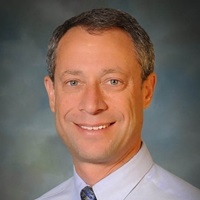
“At the time, we were the smallest to ever join,” said Dr. Perry Brown, co-director of St. Luke’s Cystic Fibrosis Center of Idaho. “One of the things that has been exciting for us is doing it and succeeding.”
The ability to participate in national studies is important for St. Luke’s, and for patients who have cystic fibrosis, a chronic genetic disease that affects the lungs and digestive systems. It allows people in Idaho to participate in those studies without leaving home. And in the past decade, it has allowed St. Luke’s to participate in studies that have helped make great strides in the treatment of the disease.
The St. Luke’s center’s achievements have been dazzling:
- The center has a study retention rate of 98 percent.
- It has provided patients with more than $7 million worth of study drugs.
- It has received about $1 million in grant money to support the program.
- In 2017, the center missed being a TDN top 5 recruiting center by 0.1 percent. (They have been No. 6 for the past couple of years.)
- The research team has grown from two investigators, one coordinator and one budget/contract person to five investigators, two research coordinators, one regulatory coordinator, plus a team of finance and budget people and a supervisor.
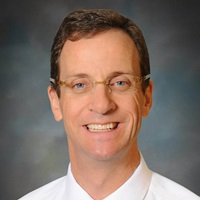
Improving Lives
Some of the program’s greatest achievements are those that have had a direct impact on quality of life and longevity for patients who have cystic fibrosis. Dr. Henry Thompson, co-director of St. Luke’s Cystic Fibrosis Center of Idaho, described those advances as “game changers” because of the radical impact they have for patients today.
The center was involved in studies for two FDA-approved genotypic therapies from 2013 to 2014. Those therapies, which are available to patients with specific genetic mutations, can make defective cells work much better, but still not quite as well as those in someone without cystic fibrosis.
“All they have to do is take a medication twice a day,” Dr. Thompson said. “They won’t have that huge burden of care.”
People with cystic fibrosis typically lose about 2.5 percent of lung function each year. Complications include pulmonary exacerbations (chronic lung infection with escalating symptoms), and it is common for cystic fibrosis patients to be hospitalized several times each year.
The new drugs – which were introduced as research study drugs – reduce loss of lung function by half and pulmonary exacerbations by 40 percent. As a result, patients spend significantly less time in the hospital and experience less suffering from acute infections.
Better lung function enables patients to participate in the activities they enjoy with less fatigue. One of the center’s patients enjoyed clogging, and usually had to stop several times to rest during each class. Within three weeks of a four-week trial the patient phoned the research coordinator in tears to report making it through an entire clogging class without needing to stop and rest.
“There are really multiple ways research has offered opportunities for us to provide better care for these patients,” Dr. Brown said.
Extending Lives
Patients aren’t just feeling better. They are living longer. In the 1980s, patients diagnosed with cystic fibrosis were told they would be fortunate to live into their 20s. Today it is common for patients to reach their 50s, and many can expect to live into their 60s and 70s.
“That is a direct result of research,” Dr. Thompson said.
As part of that longer life, patients and physicians are experiencing a new challenge: Health problems that normally confront people in middle age, such as high cholesterol and heart disease. It’s a first for pediatricians like Dr. Thompson, who are now treating pediatric patients well into adulthood.
Today, about half of St. Luke’s cystic fibrosis patients are adults. The center is also open to both pediatric and adult patients. Nationally, there are more adults who have cystic fibrosis than there are children.

At the age of 35, Kortney Tracy is one of those adult patients in Boise. Kortney has participated in two studies at St. Luke’s and is thrilled to be part of ground-breaking research that could one day benefit future CF patients.
“What I’m contributing is helping the entire CF community,” Kortney said. “I’m always hopeful the research I participate in impacts my health directly. But I’m also grateful to be advancing research that will bring medications to the youngest kiddos of our CF community that will hopefully allow them to live normal lives.”
When she was a baby, Kortney’s parents were told she likely would only live for a few years. But that number continued to expand as she grew up. By the time Kortney was in college, that number had stretched into the 20s. She graduated from Boise State University with a degree in finance and continued to watch that number grow. She got married and had two children, and the family enjoys stand-up paddle boarding and swimming as well as running and hiking in the Foothills. Kortney’s diagnosis doesn’t define her life.
“I’ve really been chasing that number my entire life,” Kortney said. “Instead of the life expectancy being a predictor of my future, I have pushed against that and lived my life believing that my future, even with CF, was not yet written. I’ve lived my life with hope that medical advances would bring a cure. With all this new medical advancement in recent years it’s been really exciting. It’s that thing I had always hoped for, and it’s finally within reach. It’s really an exciting time.”
About The Author
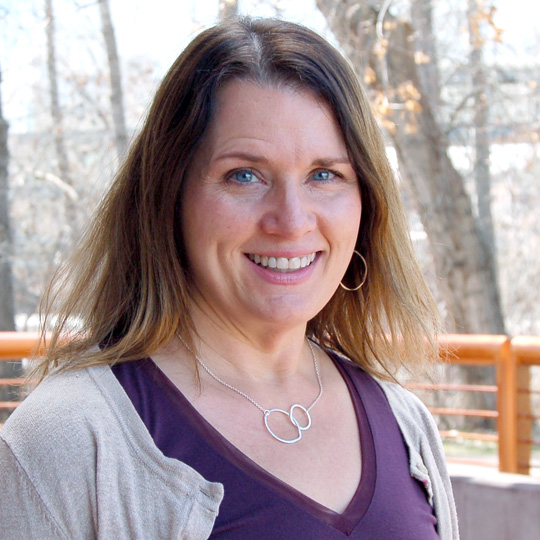
Chereen Langrill was formerly a communications coordinator for St. Luke’s Health System.

